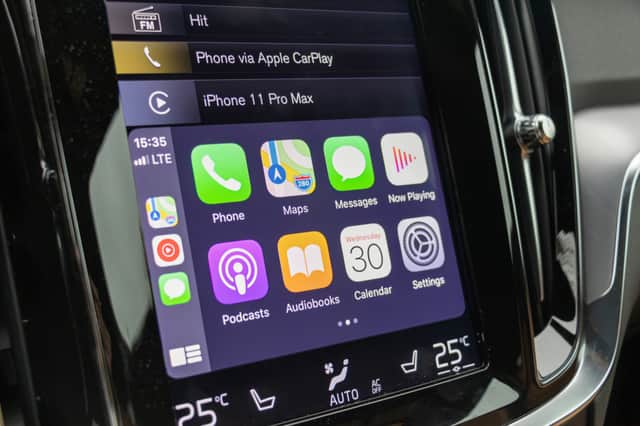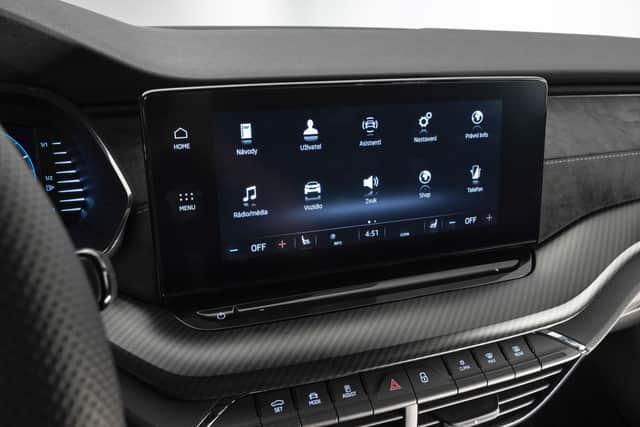How to erase your personal data from your car
This article contains affiliate links. We may earn a small commission on items purchased through this article, but that does not affect our editorial judgement.


Like every aspect of our lives, our cars increasingly gather data on who we are and what we do.
Through modern infotainment systems, phone mirorring, car management apps and on-board telematic systems, our vehicles collate huge amounts of data. And it’s not just statistics about how we drive. Thanks to their increasingly connected nature, cars are a hotbed of personal information.
Advertisement
Hide AdAdvertisement
Hide AdOn-board technology can now log and store everything from your musical tastes to where you live and work, your current location and location history, your email address and the contact details of friends, family and colleagues.
Having a car that warn of traffic on your regular commute, call your mum with a voice command or stream your favourite Spotify playlist does make life more convenient. But failing to delete all that information when you sell the car means it will be accessible to future owners.
A study by Which? found that 79% of drivers didn’t take measures to delete their personal data from their car before selling it, leaving themselves potentially vulnerable to invasions of privacy.
As part of a study into how much data different cars collect, car insurance site Confused also looked at the steps you can protect your identity when you sell a car, with expert Alex Kindred offering the following tips:
Remove all Bluetooth pairings
Advertisement
Hide AdAdvertisement
Hide AdDisconnect all your previous Bluetooth pairings from your car to ensure the safety of your devices. Although most paired devices will need to be in range to connect, it’s still important to remove them as they will have access to all your contacts, call and text history.


Log out of all apps
Log out of all navigation, music and other apps you have an account for, including any driver profiles and make sure your user details and passwords do not automatically populate to log you back in. With tech companies like Apple offering CarPlay for example, which gives drivers the ability to unlock and start their car from their iPhone, if drivers don’t log out of features like this, then future drivers of that vehicle may be able to gain access to your music accounts, as well as personal calendars and other iPhone features.
Delete contacts and call history
Manually go through your car’s stored phone book and erase all your saved and synced contacts, calls and text history. In cases like this, it’s important to protect other people’s personal information too, like their phone numbers, to avoid future drivers being able to contact them unwantedly.
Delete saved addresses
Similarly, it’s important to erase all addresses and saved locations from the car’s navigation system. If not wiped, then future drivers will have a pretty clear idea of the places you regularly travel to, such as your place of work, or family and friends’ homes. In that case, it’s also important to erase this information, not only to protect yourself but also protect other people - particularly if the saved location has been given a name such as “Mum’s house” for example.
Remove all external storage
Advertisement
Hide AdAdvertisement
Hide AdIf your car has removable media storage, like a USB drive or SD card, make sure these are all removed from the car and the information hasn’t been stored anywhere - especially if the devices contain personal information stored on them. Some older cars use an SD card to run their sat nav, in these cases you need to leave the card in the car but delete any personal addresses or information from the system’s memory.
Refer to the manual or speak to your dealer
While the above steps are a guide, it’s worth checking your car’s manual for any car-specific instructions. And if you’re any doubt about clearing your data from your car you can ask your dealer to restore the car to its factory settings, in the same way you would with a mobile phone.
